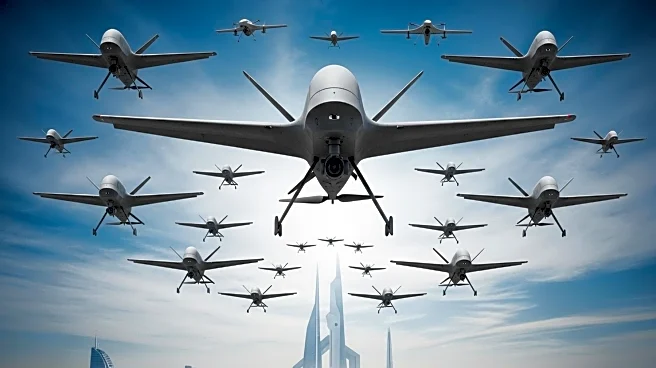What's Happening?
China hosted a military parade attended by leaders from 26 countries, including Russia's President Putin and North Korea's Kim Jong-un, to commemorate the 80th anniversary of the end of World War II. The event highlighted China's proposal for global governance reform, positioning itself as a champion of the developing world against a U.S.-led order. The presence of Putin and Kim underscores China's strategic alignment with countries challenging the current international system. The parade reflects China's ambition to reshape global governance and promote multipolarity.
Why It's Important?
China's hosting of a military parade with global leaders signals its intent to challenge the U.S.-led international order and promote a new paradigm of global governance. The event underscores China's growing influence and its strategic alignment with countries like Russia and North Korea. This development has implications for global geopolitics, as China seeks to position itself as a leader of the developing world and advocate for multipolarity. The situation highlights the shifting dynamics in international relations and the potential impact on global governance structures.
What's Next?
China is likely to continue its efforts to reform global governance and promote multipolarity in the coming months. This may involve strengthening ties with countries that share its vision and expanding its influence in multilateral forums like the BRICS and SCO. China's foreign policy will likely focus on challenging the U.S.-led order while maintaining strategic autonomy. The situation may lead to increased geopolitical tensions and influence future diplomatic engagements between China and other global powers.








